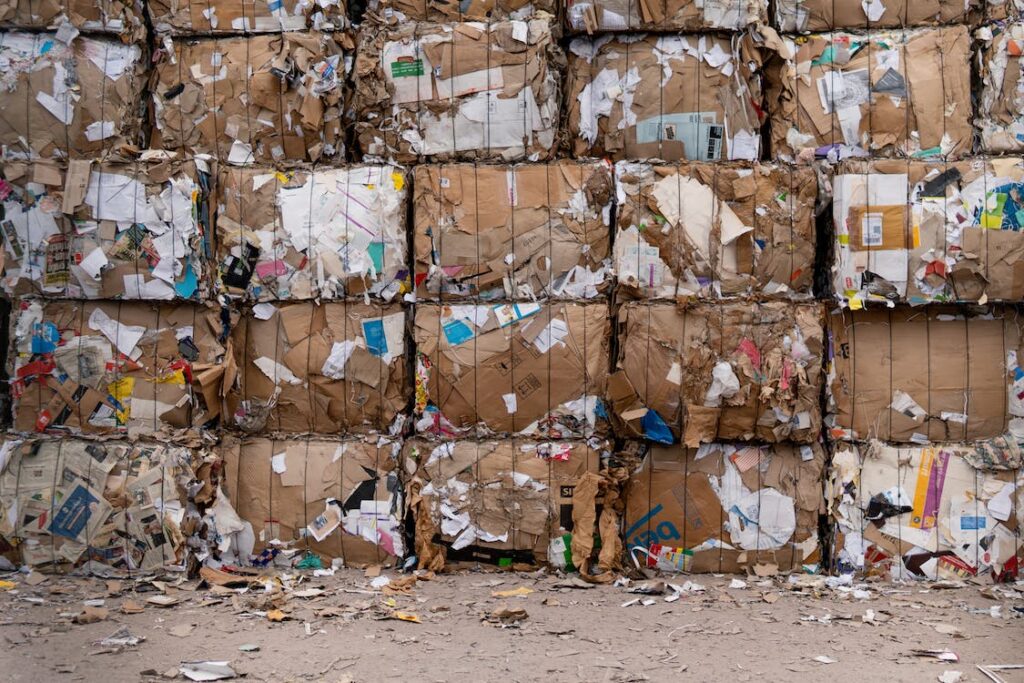In our rapidly advancing world, household appliances have become indispensable tools that make our lives more convenient and comfortable.
From refrigerators to washing machines, these appliances have revolutionized the way we manage our homes.
However, with the ever-increasing production and disposal of appliances, we face a growing environmental challenge – electronic waste.
In this comprehensive guide, we will delve into why recycling appliances is imperative for the environment and the steps individuals and societies can take to address this critical issue.

The Appliance Dilemma
The modern household is filled with a wide range of appliances designed to simplify our daily routines.
Refrigerators keep our food fresh, washing machines clean our clothes, and dishwashers save us time in the kitchen.
However,
While these appliances enhance our quality of life, they also pose environmental challenges when they reach the end of their useful life.
Appliances, like all electronic devices, have limited lifespans.
Over time, they wear out, become obsolete, or are simply replaced by more efficient models.
When these appliances are discarded without proper recycling, they contribute to the growing problem of electronic waste or e-waste.
Understanding the E-Waste Problem
Electronic waste, or e-waste, refers to any discarded electronic device, including household appliances.
The alarming rise in e-waste is a global concern due to its detrimental environmental and health impacts.
Here’s why e-waste is a pressing issue:
- Toxic Components: Appliances often contain hazardous materials such as lead, mercury, and flame retardants. When these materials end up in landfills, they can leach into the soil and groundwater, posing serious health risks.
- Resource Depletion: Appliances are made from valuable resources like metals and plastics. Discarding them without recycling means we lose the opportunity to recover and reuse these resources, contributing to resource depletion.
- Energy Intensive: The production of new appliances requires significant energy and resources. Recycling appliances conserves energy and reduces the need for extracting raw materials.
- Landfill Space: E-waste takes up precious landfill space, increasing the demand for landfills and contributing to land scarcity issues.
Why Recycle Appliances?
Recycling appliances is not merely an eco-friendly choice; it’s a necessity to address the environmental and societal challenges posed by e-waste.
Here are the compelling reasons why recycling appliances is crucial:
- Environmental Preservation: Recycling appliances prevents the release of hazardous materials into the environment, protecting soil, water, and air quality. This preservation is vital for both human and ecosystem health.
- Resource Conservation: Appliances contain valuable materials like copper, aluminum, and steel. Recycling them reduces the need for mining and manufacturing new resources, conserving natural reserves.
- Energy Efficiency: Recycling appliances consumes significantly less energy than producing new ones from raw materials. This energy efficiency contributes to reducing greenhouse gas emissions and combating climate change.
- Economic Opportunities: Recycling appliances generates economic opportunities, from the collection and transportation of e-waste to the recycling and refurbishing processes. It supports job creation and stimulates local economies.
- Legal Compliance: In many regions, proper disposal and recycling of appliances are mandated by law. Non-compliance can result in fines and legal consequences for individuals and organizations.
How Appliances Are Recycled
Recycling appliances involves a series of carefully executed steps to ensure both environmental protection and resource recovery.
Here’s an overview of the typical appliance recycling process:
- Collection: Discarded appliances are collected from various sources, including households, businesses, and recycling centers.
- Transportation: The collected appliances are transported to specialized recycling facilities. During transportation, efforts are made to minimize any further environmental impact.
- Sorting: At the recycling facility, appliances are sorted based on their type and material composition. This step ensures that each component is treated appropriately.
- Dismantling: Appliances are disassembled to separate hazardous materials like refrigerants, oils, and capacitors from non-hazardous parts.
- Component Recovery: Valuable components such as copper wiring, motors, and electronic circuits are extracted for reuse or recycling.
- Material Recycling: Materials like steel, aluminum, and plastics are recovered and sent to processing facilities for recycling into new products.
- Safe Disposal: Hazardous materials are disposed of safely, following strict environmental regulations.
- Refrigerant Management: Refrigerants, which are potent greenhouse gases, are carefully captured and properly managed to prevent their release into the atmosphere.
Individual Actions
While large-scale recycling programs play a vital role, individuals can also contribute significantly to appliance recycling efforts:
- Proper Disposal: When replacing an appliance, always choose a responsible disposal method. Check with your local recycling center or waste management authority for guidelines on how to dispose of appliances safely.
- Donation: Consider donating your old but functional appliances to charities or organizations that can refurbish and redistribute them to those in need.
- Eco-Friendly Choices: When purchasing new appliances, opt for energy-efficient models with longer lifespans. This reduces the frequency of disposal.
- Awareness and Advocacy: Educate yourself and others about the importance of appliance recycling. Advocate for proper e-waste management in your community.
In Conclusion
The need to recycle appliances has never been more urgent.
As we enjoy the convenience and comfort these devices bring into our lives, we must also accept our responsibility to manage their end-of-life cycle responsibly.
By recycling appliances, we protect the environment, conserve valuable resources, reduce energy consumption, and support economic growth.
It is a collective effort that requires participation from individuals, manufacturers, and policymakers to ensure a sustainable and eco-friendly future.